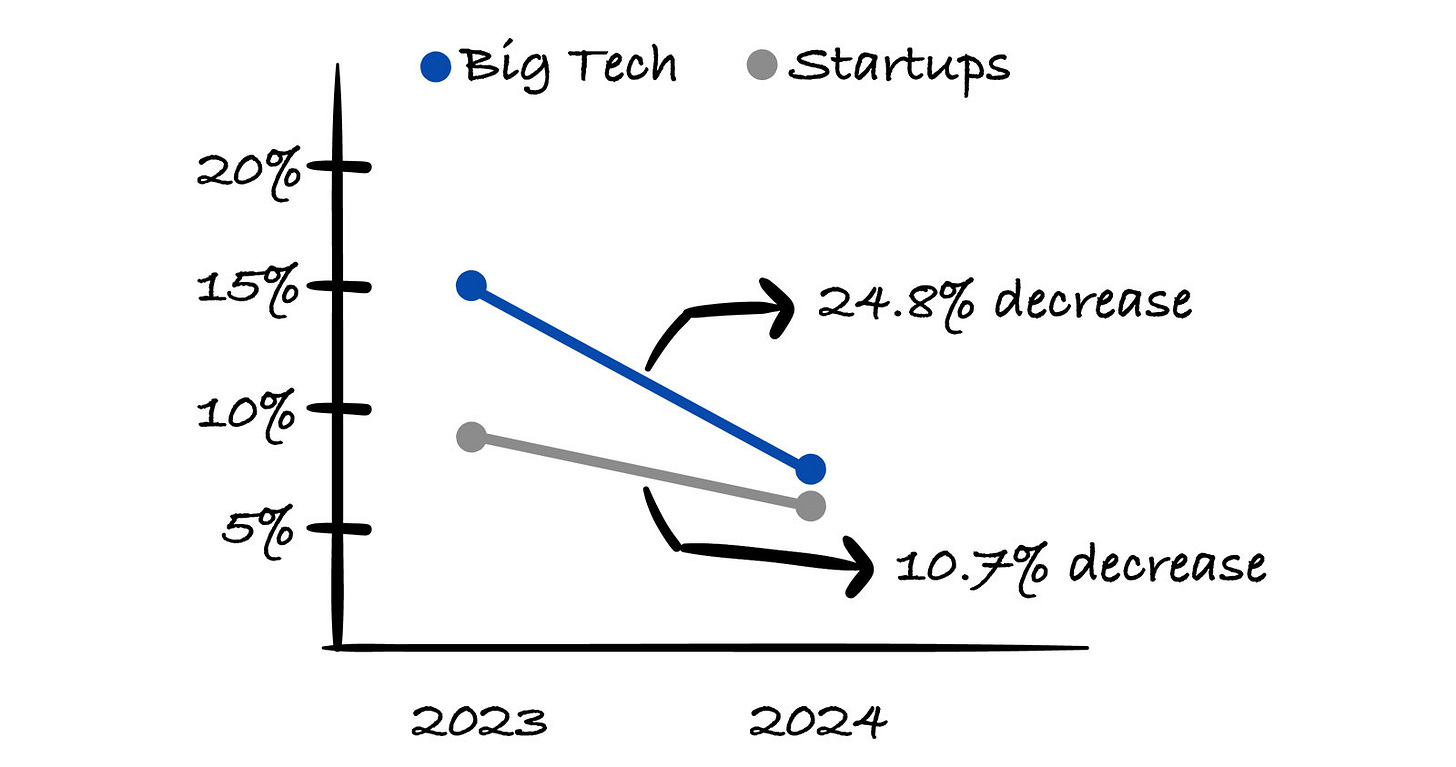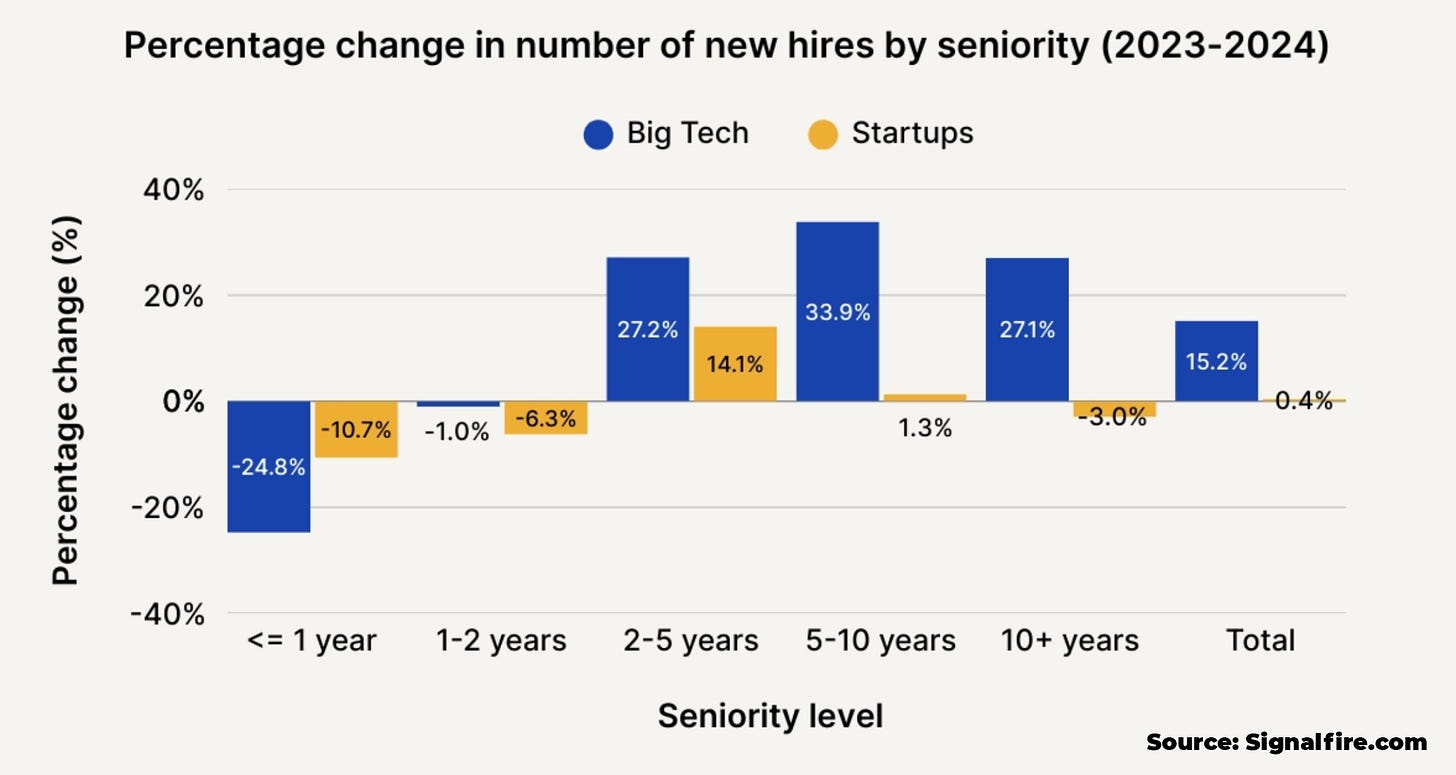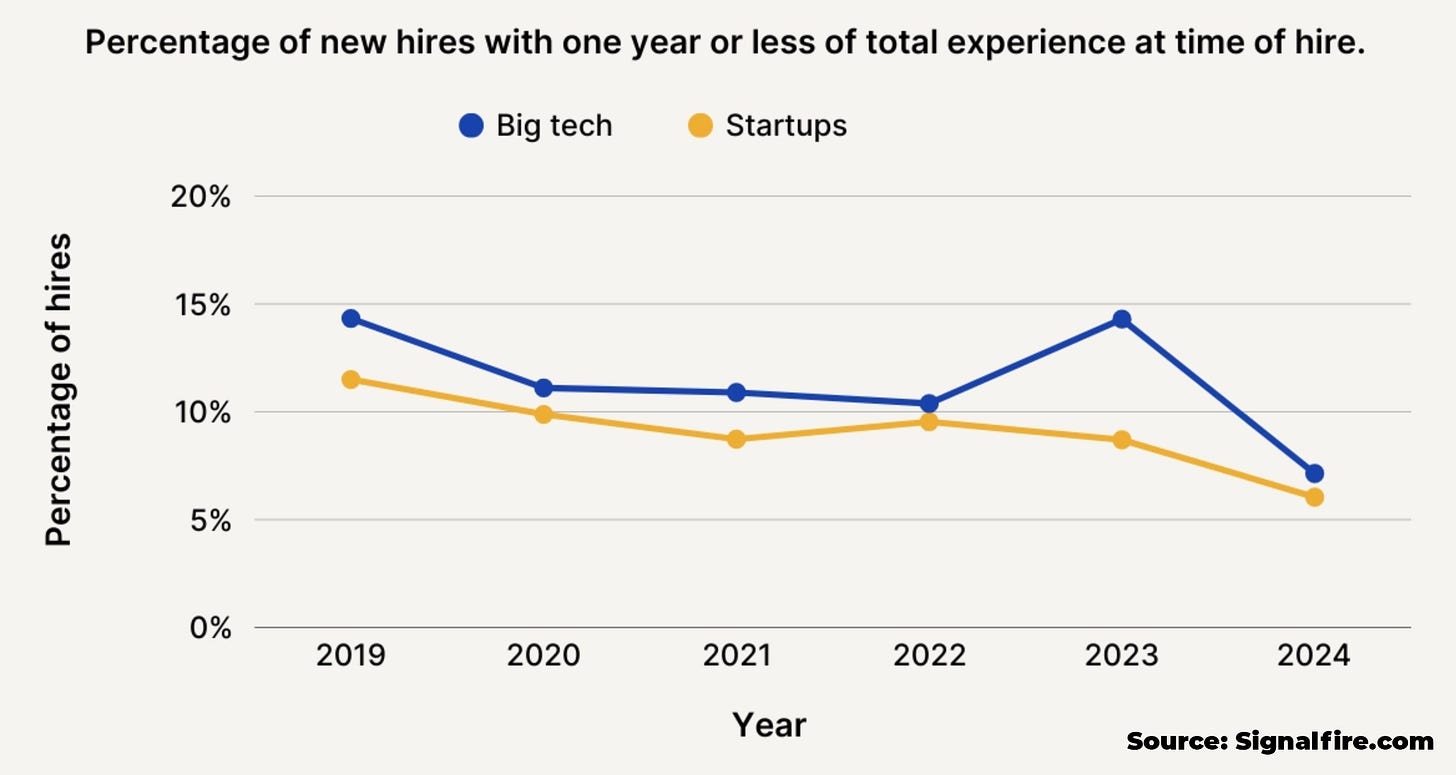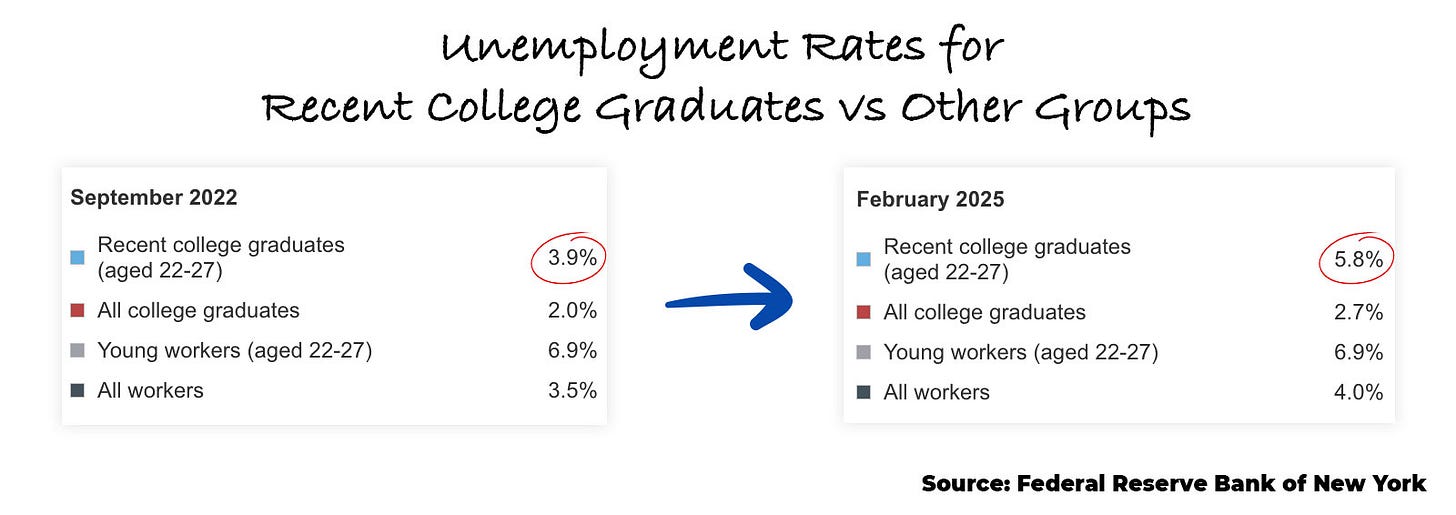SignalFire has recently conducted a report, where they revealed their data from their platform Beacon AI which tracks over 650 million professionals and 80 million organizations on how they are hiring.
There has been a lot of interesting data from it. I’ve taken a close look at the report and I am sharing my thoughts on it and also what’s happening in the industry, both in Big Tech and Startups.
In this article, we will go over the data and my opinions on the reasoning and then I’ll be also sharing my top tips on what to do to increase your chances of getting a role if you have less than 2 years of experience in the industry.
This is an article for paid subscribers, and here is the full index:
- We have speculated for a long time that entry-level tech jobs are going to be decreasing
- Percentages of hires from 2019-2024 with one year or less experience
- We can see a similar decrease for entry-level roles in all industries not only in tech
- You need work experience to get a job, but you need a job to get work experience
🔒 This is what you need to do to get hired if you have less than 2 years of experience
🔒 Do freelance projects
🔒 Student jobs/internships related in some way to the field that you want to be in
🔒 Build side projects or build a product
🔒 Try to look for unfair advantage when applying to roles or when you are already in the hiring process
🔒 Bonus: Big Tech prioritizing technical roles, slows down GTM roles
🔒 Last words
And now, we have the actual data on it.
Entry-level tech jobs drop 50% in Big Tech and 30% in Startups compared to pre-pandemic levels.
Which is a huge drop.
And from 2023 to 2024, the drop was 24.8% in Big Tech and 10.7% in Startups. Especially interesting because the hiring in 2023 was one of the worst years and then in 2024 it has gotten better.
Based on the data, we can see that the people with less than 1 year of experience → so no real-world experience or potentially having an internship only, are the ones that have the most struggles in finding a job at the moment.
And here are some more interesting insights:
It looks better for 1-2 years of experience in Big Tech and a bit better in Startups.
And then people with 2+ years of experience have a much better time finding a new role.
Big Tech is increasing the hiring for all the mid+ level people and especially for Senior+ level.
The interesting insight here also is that experience plays a big role in Big Tech and a bit less in Startups. Big Tech is hiring aggressively people who have 2+ years of experience and Startups value people with 2-5 years of experience the most.
I believe the reason is that Startups are looking to get the best ROI of skills vs pay and Big Tech is looking to just fill with people who have pure experience, no matter how costly they are.
Let’s take a closer look at the percentages of hires with one year or less experience.
It’s been decreasing over the years with a spike in 2023 in Big Tech followed by a drastic decline.
My belief for the spike in 2023 is that Big Tech companies haven’t yet fully realized how they might utilize AI and how to potentially replace entry-level roles with AI.
But with 2024 and moving forward it became an AI race for Big Tech companies on who can “have the best AI”, which also created the narrative of “replacing people with AI”.
Based on the data from the Federal Reserve Bank of New York, the increase of unemployment among recent college graduates in the USA has increased by almost 50% from September 2022 (the low) to February 2025. From 3.9% to 5.8%.
The interesting insight here is that while the unemployment of college graduates has increased, the overall unemployment of young workers (aged 22-27) stayed the same. Which is a knock on the educational system to better prepare its people.
And this is an important insight from the SignalFire report, so let me quote it:
Even top computer science grads aren’t spared. As demand for junior roles declines, even highly credentialed engineering grads are struggling to break into tech, especially at the Big Tech companies.
The share of new graduates landing roles at the Magnificent Seven (Alphabet, Amazon, Apple, Meta, Microsoft, NVIDIA and Tesla) has dropped by more than half since 2022.
Now, this takes us to an interesting thought. Let’s get to that next.
This is a classic Catch-22 paradox which creates a no-win situation because you need work experience in the first place in order to get a job → but how can you actually get work experience if nobody hires you?
The key here is to create opportunities and work yourself and not wait for others to give it to you. This was already the case when I first started my career as an engineer more than 10 years ago.
As a self-taught engineer without a CS Degree, I wouldn’t get a full-time engineering role if I hadn’t been doing student jobs before that. That got me the necessary experience in order to get hired.
It was different for new grads 10 years ago → it was way easier for them to get a role, but this has changed now. No matter if you have a degree or not, you need to proactively search for opportunities and create work yourself.
How to do that? Let’s get straight to my top tips next.
.png)








